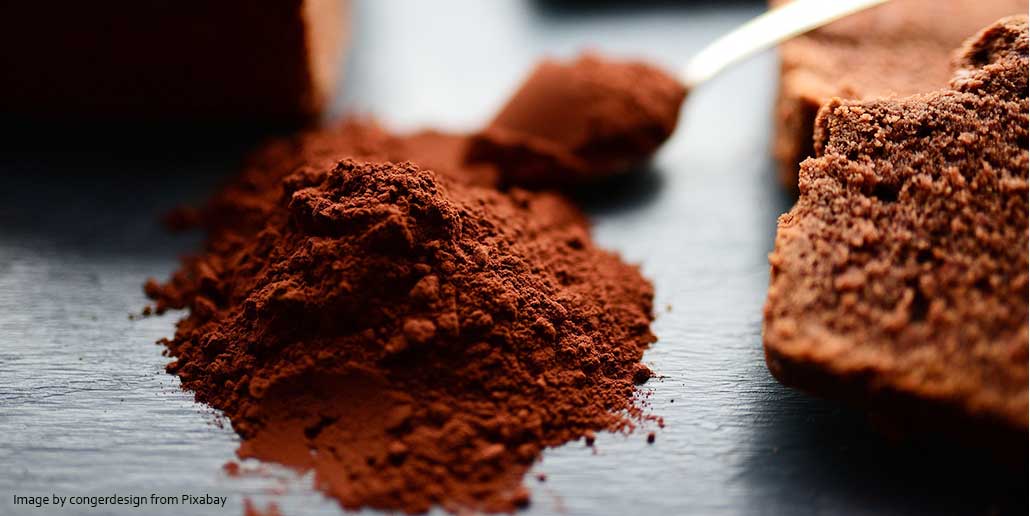
The Potential of Cocoa Flavanols
Cocoa, derived from the cacao bean, has been celebrated for its rich flavour and numerous health benefits. Among its bioactive compounds, flavanols stand out as powerful antioxidants with potential health-promoting effects. Recent research has highlighted their ability to counteract the negative impacts of high-fat meals and stress on cardiovascular and metabolic health. This article explores the mechanisms, findings, and implications of cocoa flavanol research in mitigating these challenges.
The Challenge of High-Fat Meals and Stress
Modern diets commonly include high-fat meals, which contribute to the global rise in obesity, metabolic disorders, and cardiovascular diseases. These meals can induce acute postprandial effects, including inflammation, oxidative stress, and endothelial dysfunction (the impaired ability of blood vessels to dilate). Over time, these effects increase the risk of chronic diseases.
Stress, on the other hand, is another pervasive issue, triggering physiological responses that include elevated cortisol levels, increased heart rate, and heightened oxidative stress. Chronic stress can exacerbate cardiovascular strain, disrupt metabolic processes, and weaken immune defences. The combined burden of high-fat meals and stress amplifies risks to overall health, making the search for dietary strategies to mitigate these effects particularly important.
Cocoa Flavanols: An Overview
Cocoa flavanols are a subclass of flavonoids found in cacao beans, known for their potent antioxidant and anti-inflammatory properties. These compounds support endothelial function, improve blood flow, and enhance nitric oxide production—a critical molecule for vascular health.
Cocoa flavanols are abundant in dark chocolate and unprocessed cocoa products. However, their content varies depending on the cocoa’s source, processing, and preparation, with minimally processed products typically retaining the highest levels.
Effects on High-Fat Meal-Induced Damage
A growing body of research demonstrates that consuming cocoa flavanols before or alongside high-fat meals can mitigate their adverse effects. One study published in the American Journal of Clinical Nutrition investigated the impact of cocoa-rich beverages on postprandial endothelial function. Participants who consumed cocoa flavanols with high-fat meals exhibited improved vascular responses compared to those who did not.
Flavanols achieve this protective effect by reducing oxidative stress and enhancing nitric oxide availability. They neutralize free radicals generated by high-fat foods, preventing damage to blood vessel walls and preserving their elasticity. Moreover, cocoa flavanols help regulate blood glucose and lipid levels, reducing the spikes typically associated with fatty meals.
Combatting Stress-Induced Impacts
Stress management is a critical component of overall health, and cocoa flavanols may offer a dietary intervention. Research indicates that these compounds can modulate stress responses by influencing the hypothalamic-pituitary-adrenal (HPA) axis, which governs cortisol production.
A study published in the Journal of Psychopharmacology examined the effects of cocoa flavanol supplementation on psychological stress. Participants who consumed flavanol-rich cocoa beverages reported lower stress levels and exhibited reduced cortisol responses to stress-inducing tasks compared to the control group.
Additionally, cocoa flavanols have been linked to improved cognitive function and mood. Their ability to enhance cerebral blood flow supports mental clarity and resilience under stress, providing a dual benefit for psychological and physiological health.
Synergistic Effects
While the individual benefits of cocoa flavanols on high-fat meals and stress-induced effects are impressive, their combined impact is particularly noteworthy. The antioxidant properties of flavanols can address oxidative stress common to both scenarios, while their vascular benefits improve overall cardiovascular resilience.
Furthermore, flavanols’ influence on inflammation offers protection against stress and dietary insults. Chronic inflammation is a shared pathway in the development of metabolic and cardiovascular diseases, making flavanols a valuable ally in comprehensive health strategies.
Practical Applications and Recommendations
Dietary choices must prioritize quality and quantity to harness the benefits of cocoa flavanols. Opt for minimally processed dark chocolate with at least 70% cocoa content or pure cocoa powder. Consider integrating cocoa into daily meals, such as smoothies, oatmeal, or desserts, to enhance flavanol intake without excessive sugar or fat.
Supplementation is another viable option, with standardized cocoa flavanol extracts available for those seeking consistent dosages. However, it is essential to consult healthcare providers before beginning any supplementation, particularly for individuals with pre-existing health conditions.
Future Research and Implications
While current findings are promising, further research is needed to understand optimal dosages, long-term effects, and individual variations in response to cocoa flavanols. Large-scale clinical trials could provide deeper insights into their role in preventing chronic diseases and improving stress resilience.
From a public health perspective, the incorporation of cocoa flavanols into dietary guidelines or functional foods could offer a practical and enjoyable way to enhance population health. Their dual action against high-fat meal effects and stress aligns with the growing emphasis on preventive healthcare. By improving vascular function, reducing oxidative stress, and modulating hormonal responses, these compounds offer a holistic approach to enhancing health. Embracing flavanol-rich foods or supplements as part of a balanced diet could pave the way for better cardiovascular and mental well-being, providing a deliciously effective strategy to counteract modern-day health challenges.

